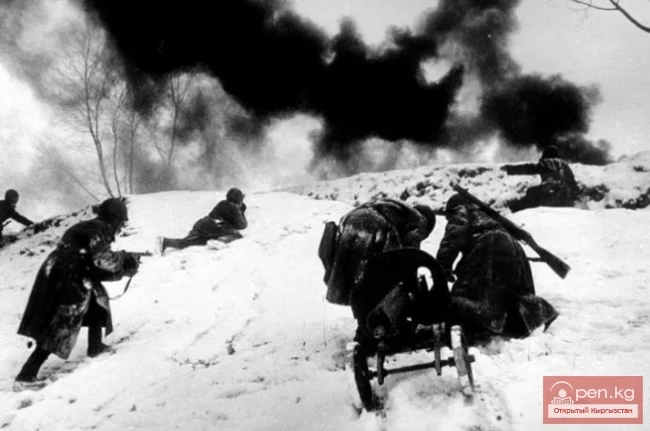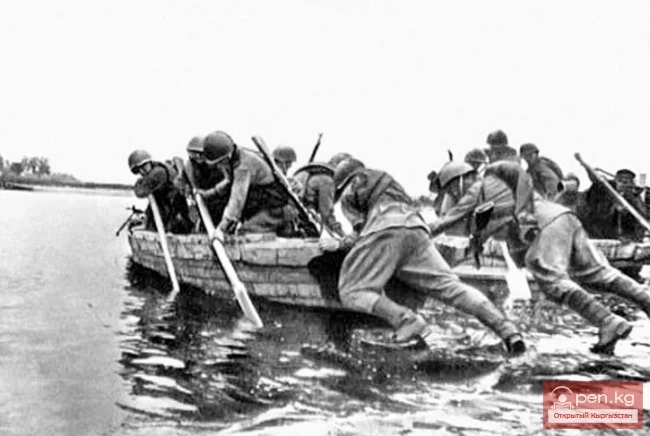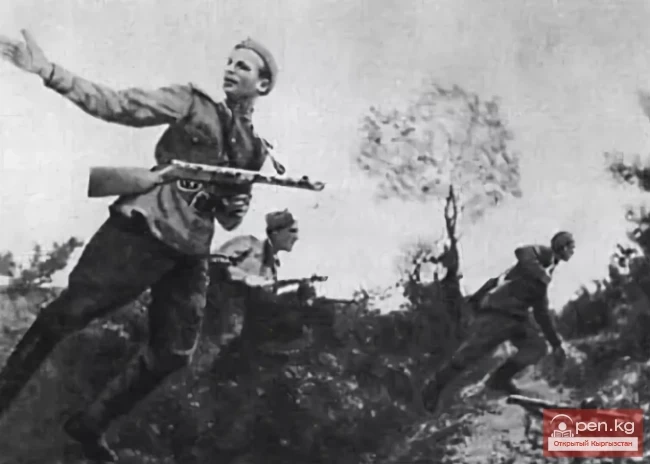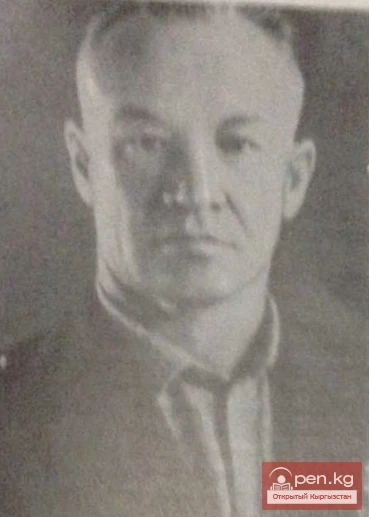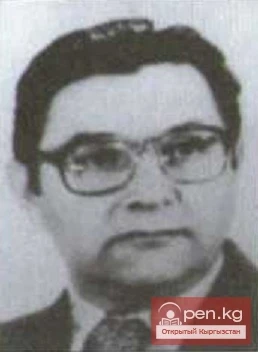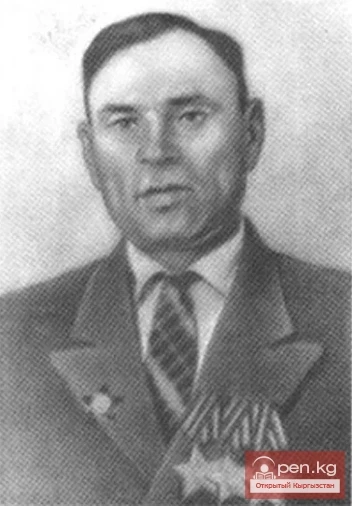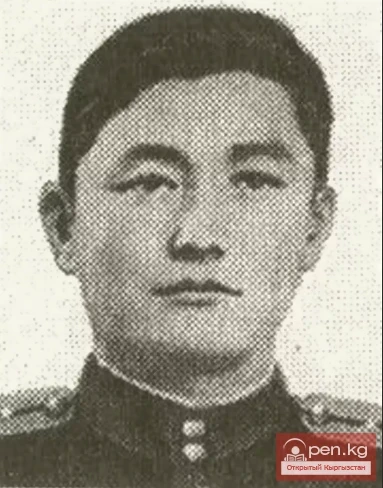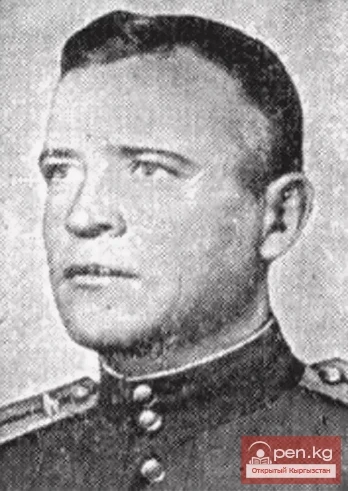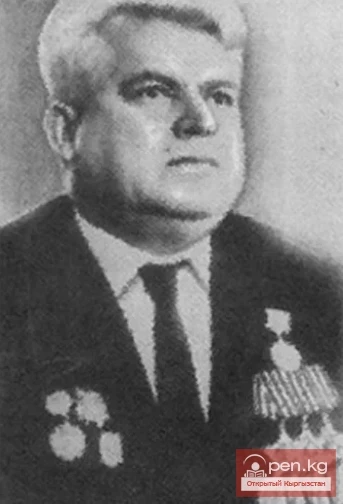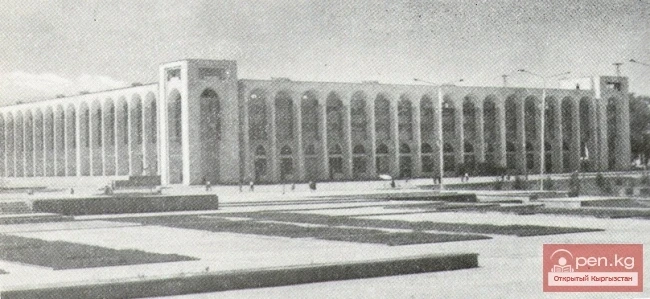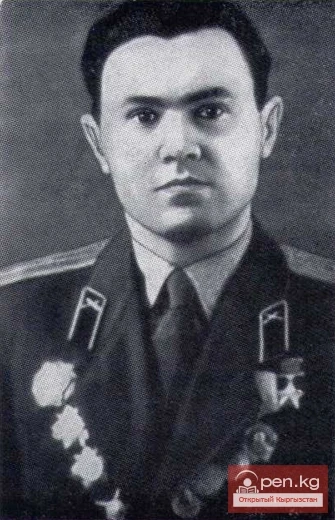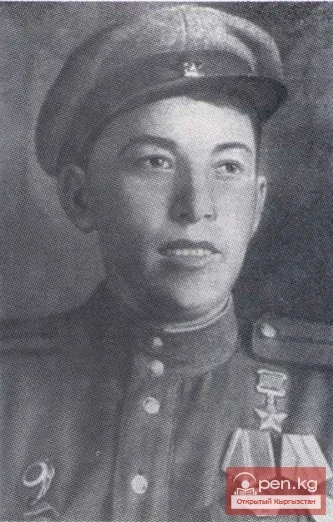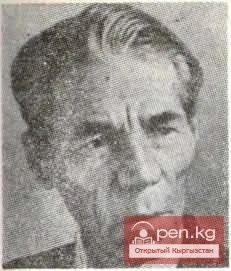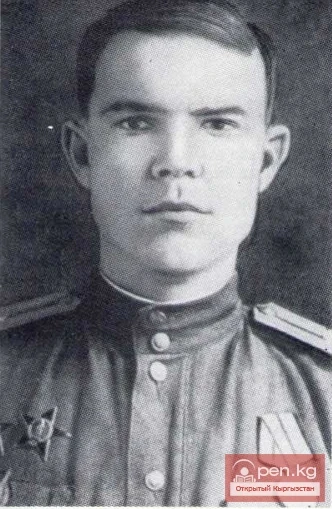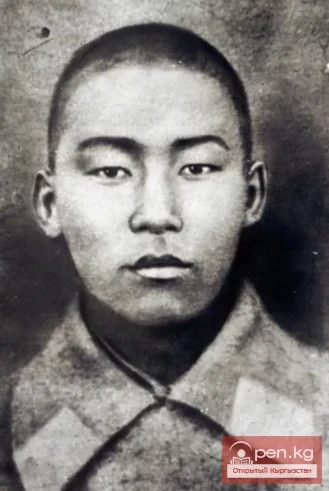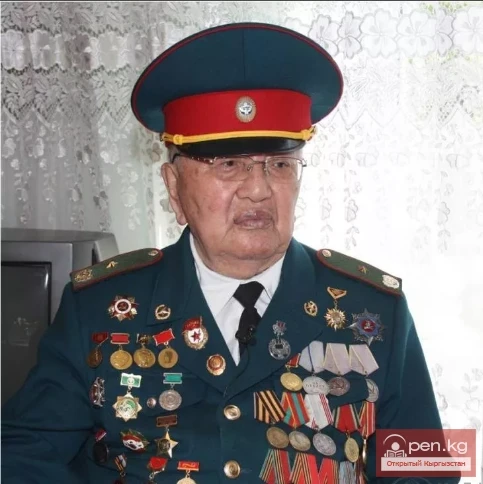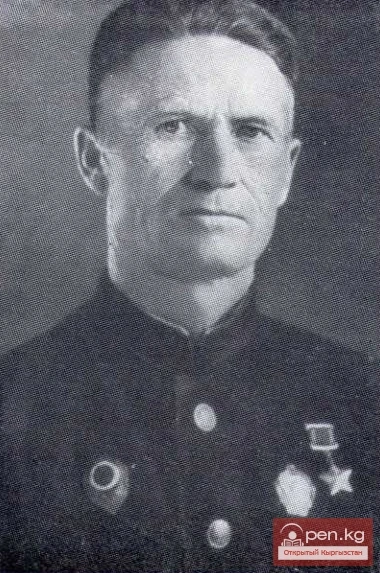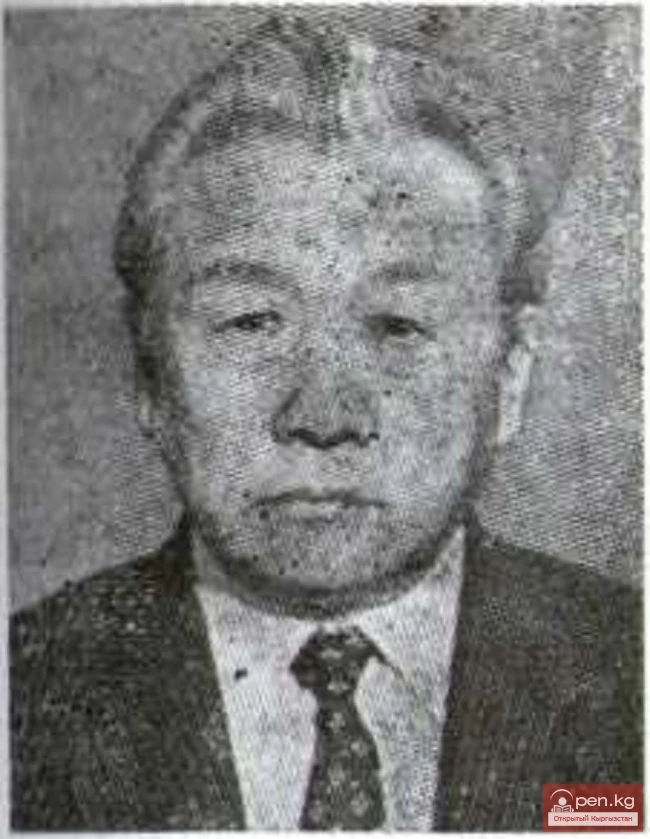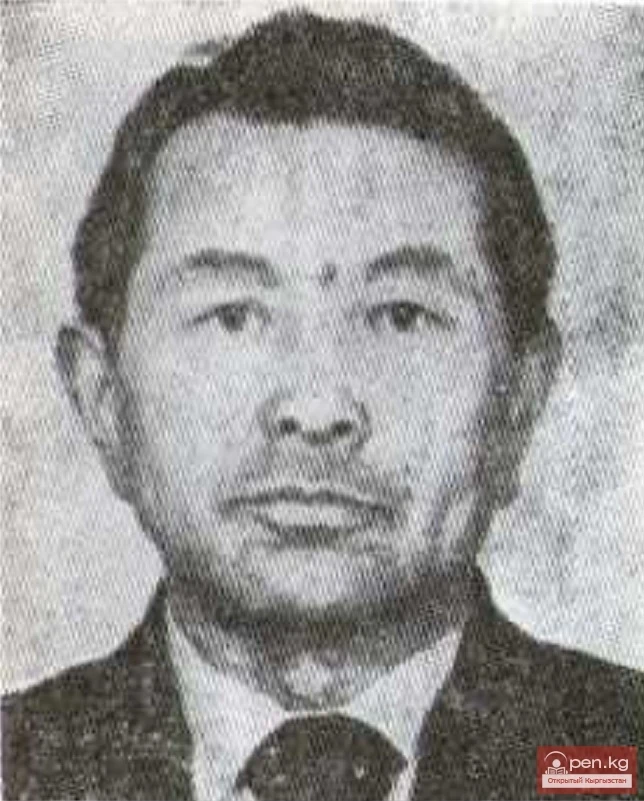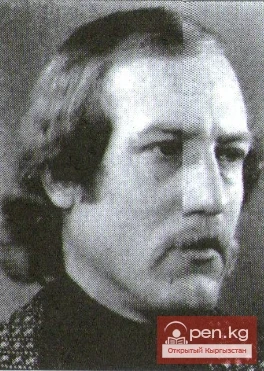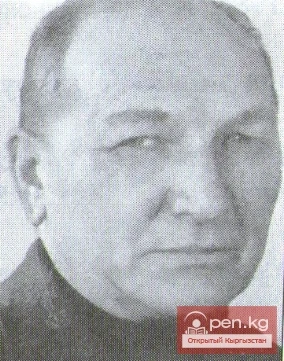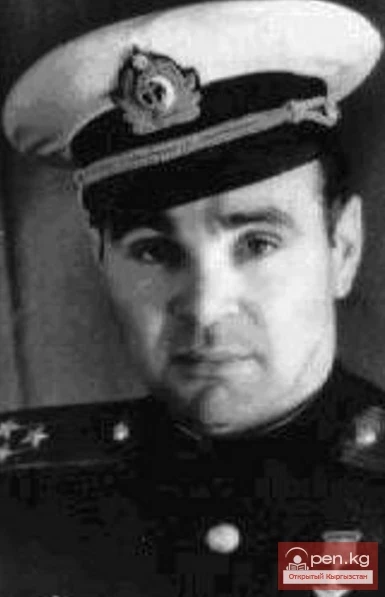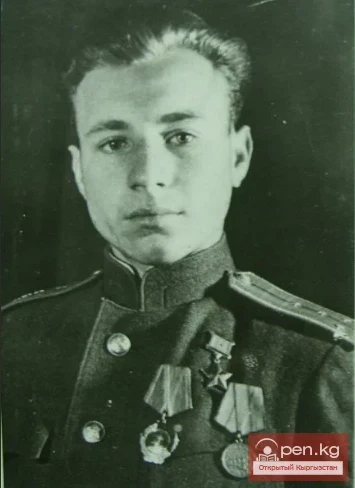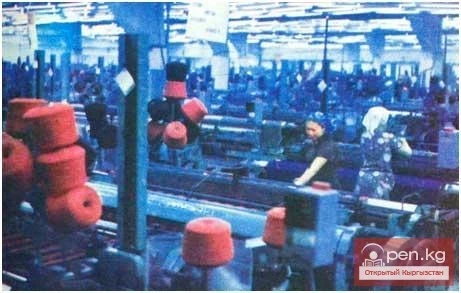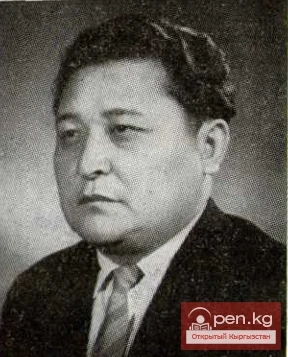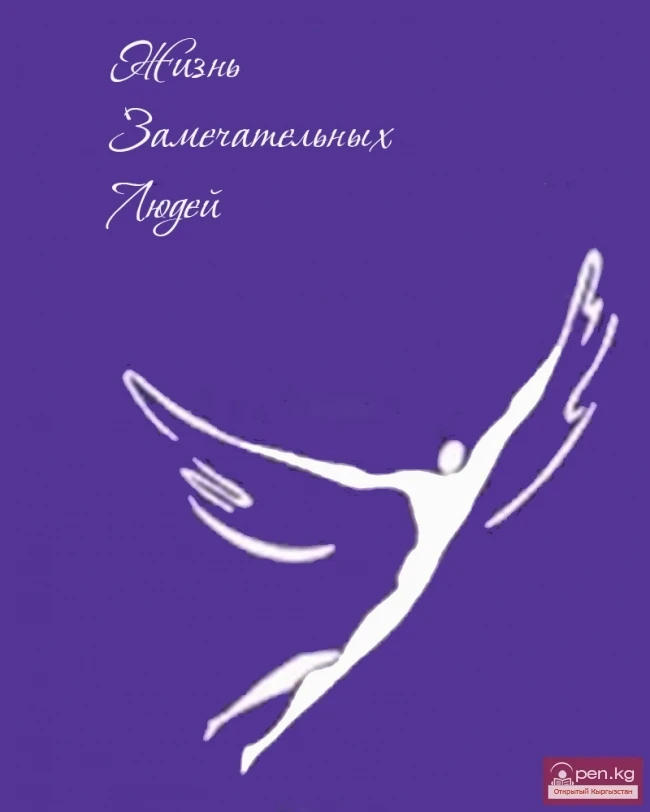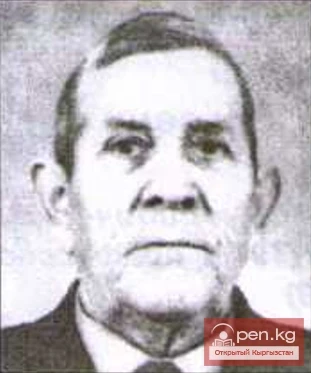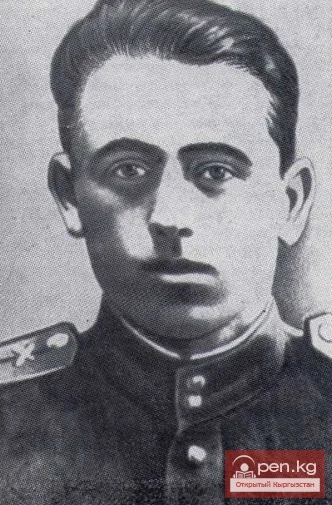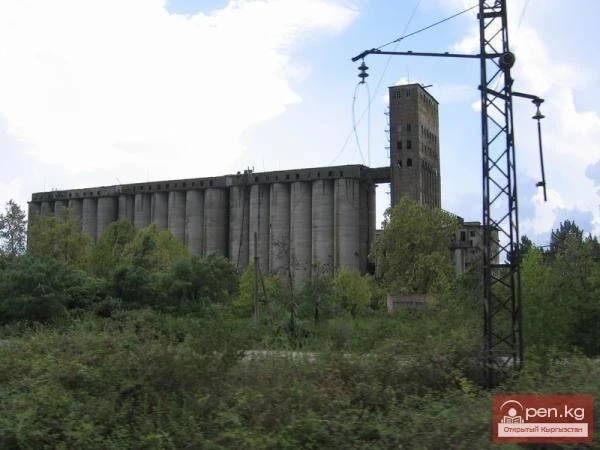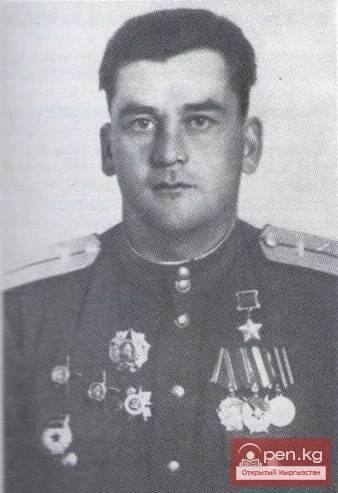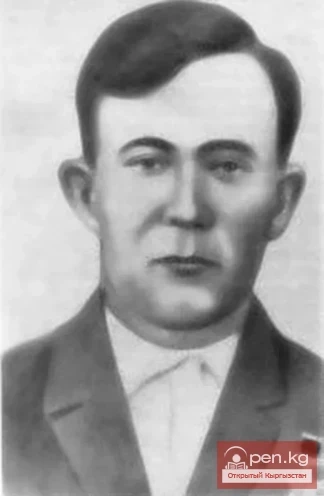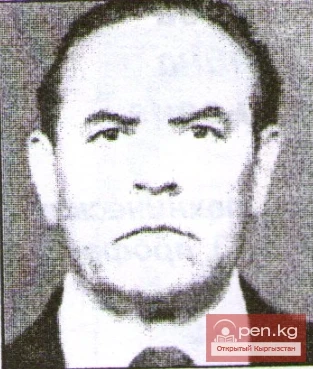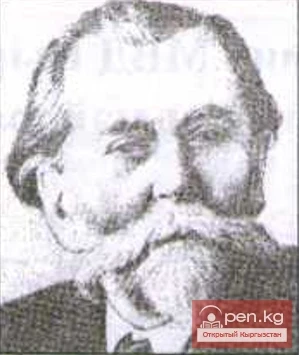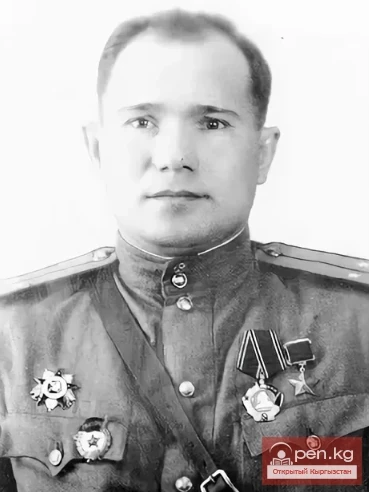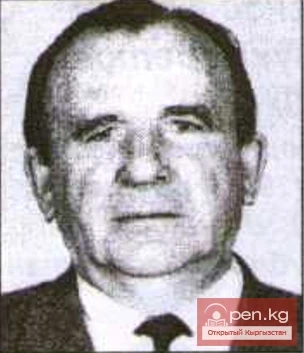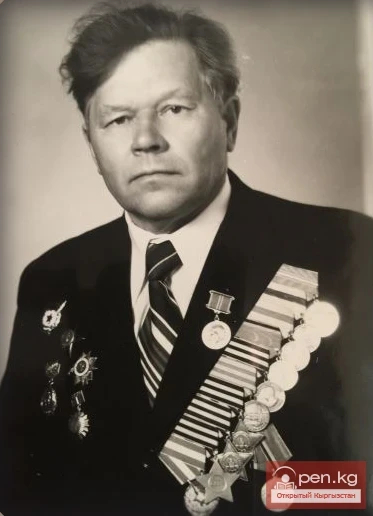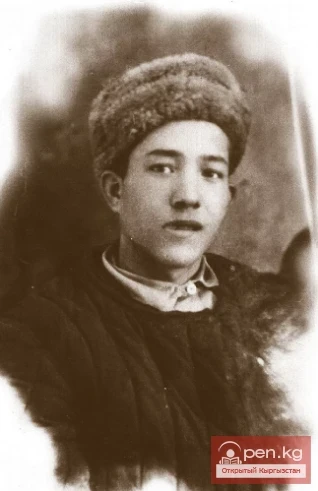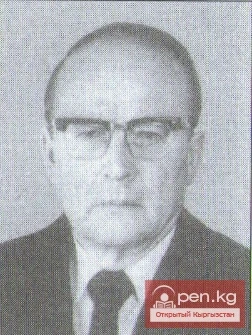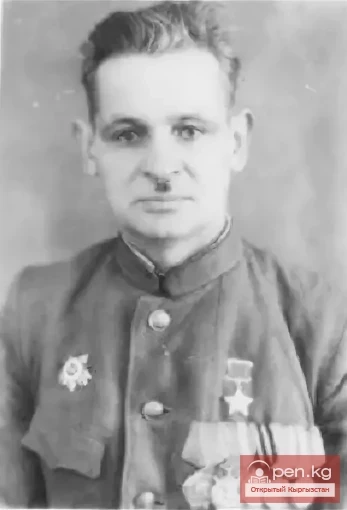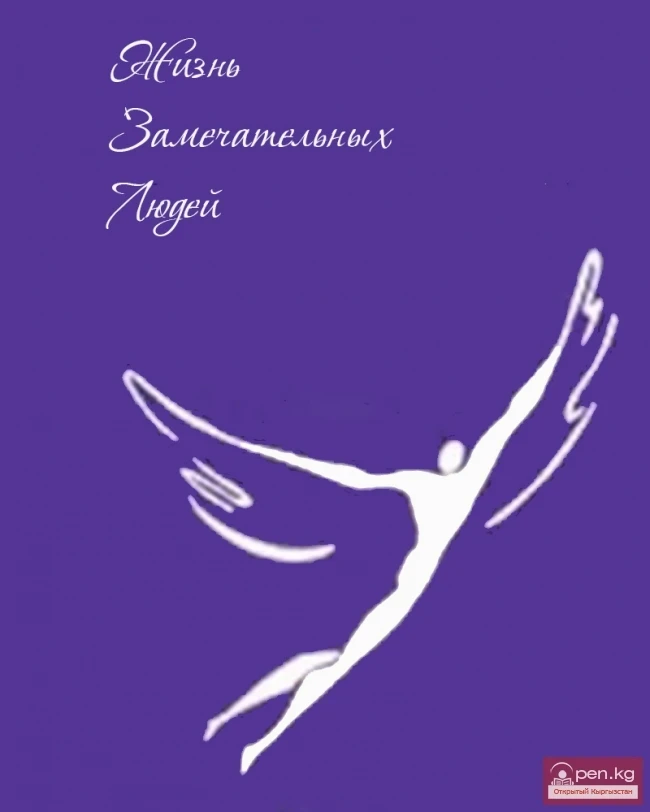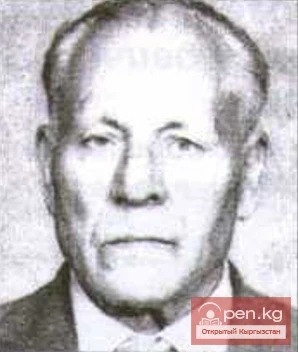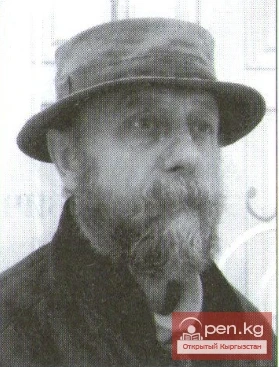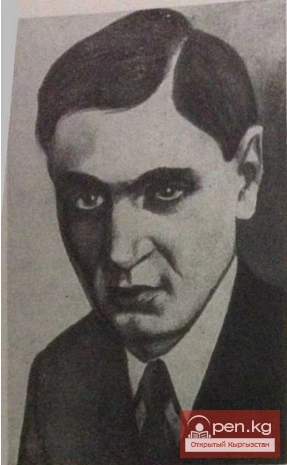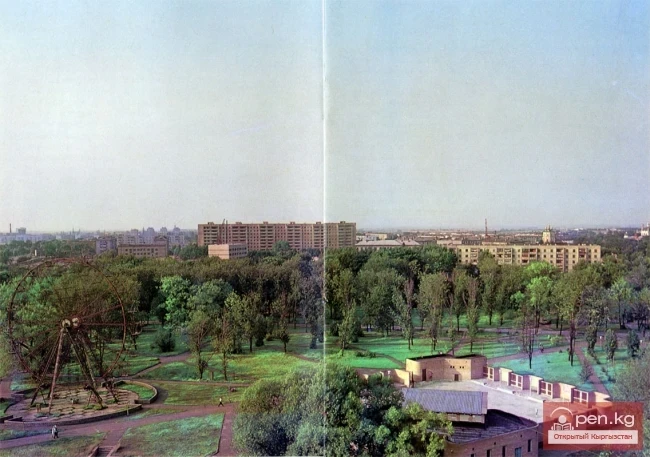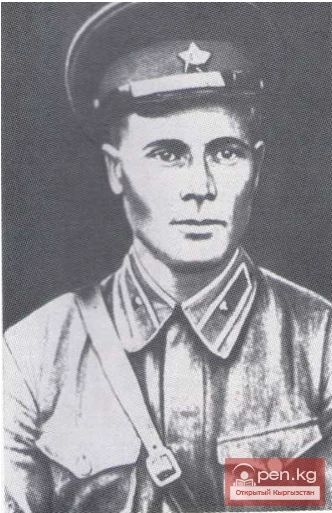
Hero of the Soviet Union Vasily Ivanovich Sukhov
Vasily Ivanovich Sukhov was born in 1910 into a peasant family in the village of Baranovka, Zmeinogorsk District, Altai Krai. Russian. Member of the Communist Party of the Soviet Union. Since 1928, he lived in the Jety-Oguz District of the Kyrgyz SSR. In 1932, he was drafted into the active service of the Soviet Army. After active service, he returned home in 1936. In 1939, he rejoined the ranks of the Soviet Army. Battalion commander, captain.
During the Great Patriotic War, he participated in battles on the Central, Bryansk, and 1st Belorussian fronts.
He was wounded twice but returned to duty. His courage and bravery displayed in battles were marked by the Orders of the Patriotic War II class and the Red Star.
On February 27, 1945, for his fearlessness and heroism, and unyielding will to victory, Vasily Ivanovich Sukhov was posthumously awarded the title of Hero of the Soviet Union.
HIS NAME IS IMMORTAL
In September 1942, a letter arrived at the name of Matryona Andreevna Sukhov, living in the village of Pokrovka, Jety-Oguz District. "Who could this be from?" she peered at the unfamiliar handwriting.
The greatest joy for Matryona Andreevna was the short messages from the front from her husband. Soldier's triangles arrived once or sometimes twice a month. Matryona Andreevna's husband, Vasily Ivanovich Sukhov, wrote briefly: "We are beating the fascists, driving them from our land. I am alive and healthy. No special changes for me. How is our little daughter growing? I would very much like to see all of you..."
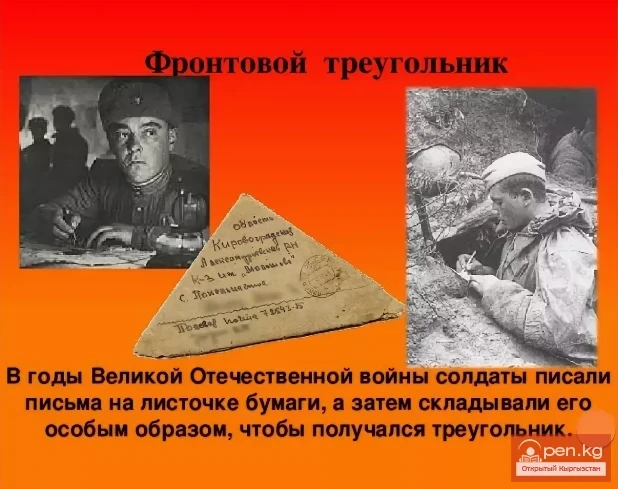
In the middle of 1942, there were no letters from Sukhov at all. And suddenly this envelope with unfamiliar handwriting...
Matryona Andreevna placed it in front of her and carefully examined the neat lines. Terrible thoughts crept into her mind. "No, it can't be!" Finally, she made up her mind. She carefully cut the edge of the envelope and took out a small sheet folded in half. She began to read immediately: "Matryona Andreevna, your comrade Vasily writes to you from the hospital..."
After these words, her eyes darkened, a dull pain echoed in her heart... Seconds passed, or maybe even minutes, before she came to herself again. She continued reading: "Don't worry, he is alive, just wounded in the arm and cannot write for now..."
Matryona Andreevna almost burst into tears but held herself back and quietly said: "My God, how I was scared!"
After some time, a message came from Vasily from the city of Chirchik in the Tashkent region. He wrote that he had been wounded, and after recovery, he was sent to courses for improving the combat training of officers. And that for crossing the Dnieper, he received the Order of the Patriotic War II class.
Here’s how it happened. The Nazis tried to hold the city of Sevsk at all costs, concentrating large strike forces there. On the approaches to the city, to cover the main forces occupying a circular defense, the enemy set up powerful barriers. The soldiers of the rifle battalion, which included Sukhov's company, had to participate in the elimination of one of these barriers.
The commander of the company, Sukhov, was confident in the success of the battle. Wherever he appeared, he tried to encourage his soldiers and junior commanders: "We will hit the fascists as soon as our 'Katyushas' finish firing."
The first attack — and the Nazis retreated. Sukhov was at the forefront of the advancing troops. A burning pain seared his shoulder. A soldier running alongside shouted, "Comrade commander, you have blood on your sleeve!" There was no time to think. The company commander, overcoming the pain, shouted: "Follow me!"
The battle lasted a long time. Sevsk was liberated. After this fierce battle, the 60th Rifle Division was named Sevskaya. Its path lay to the Dnieper, and further — to Kovel, Warsaw.
Along with the division, Captain Sukhov, who was already commanding a rifle battalion at that time, trudged through the difficult roads of war. He participated in the liberation of more than eighty cities and other settlements in Russia, Ukraine, Belarus, and Poland, crossing the rivers Desna, Dnieper, Snov, and Western Bug.
It was autumn 1944. Heavy bloody battles broke out on the approaches to the capital of Poland. The Nazi command transferred a large group of troops from the west to the Warsaw direction, creating heavily fortified defensive lines in this area of the front. These were continuous trenches, pillboxes, barbed wire obstacles, and minefields.
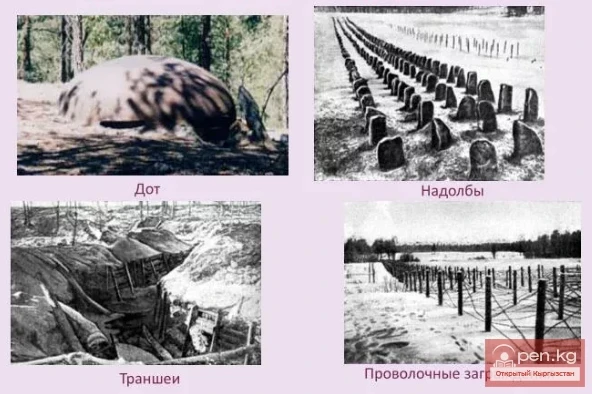
On the way of our troops to Warsaw was the Vistula River.
The rifle battalion commanded by Captain Sukhov was assigned a task of utmost importance: under the cover of artillery fire, to cross the Vistula, drive the Nazis from the coastal fortifications, and ensure the crossing of the main forces of the division.
Weighing all the circumstances of the upcoming operation, Sukhov approached the regimental commander, Lieutenant Colonel Osiko, asking for permission to personally lead the reconnaissance group.
— I fully agree with your decision, Vasily Ivanovich,— the regimental commander began in a calm tone,— I cannot deny that the commander should be where it is hardest. But keep in mind — your task will be much more complicated. Therefore, stay at your post.
Leaving the dugout where the regimental headquarters was located, Captain Sukhov hurried towards the sapper company. He made a final decision: to send its commander, Senior Lieutenant Parshin, on reconnaissance. They discussed everything together.
Sukhov and Parshin understood each other with half a word. Neither the first nor the second knew then, nor could they know, how complicated the path of the scouts would be to the enemy's position, which continuously monitored even the slightest movements of our troops, opening heavy fire from machine guns and automatic weapons as soon as our soldiers rushed in their direction.
Senior Lieutenant Parshin waited for night and under its cover moved with a small group of soldiers to the opposite bank of the Vistula.
Combat Commander Sukhov eagerly awaited news from the reconnaissance. He understood well that the success of the planned operation depended on how Senior Lieutenant Parshin coped with the task. Time dragged slowly. Captain Sukhov reflected on the events of the previous day. The last conversation with the regimental commander came to mind.
— I place great hopes on you, Sukhov. The soldiers of your battalion will be the first to open the way for the swift actions of our regiment,— said Lieutenant Colonel Osiko then.
Only now did Sukhov realize the complexity of the situation. The crossing would be a responsible test for him. "Why is he taking so long to return?"— the combat commander could not stop worrying about Parshin.
Somewhere by morning, he was informed that the reconnaissance had returned.
Sukhov interrupted Parshin's report and asked him to cross-check the reconnaissance data on the map. The fire points and defensive structures were already marked on it.
The received reconnaissance data accelerated the actions of the battalion. Without wasting a moment, Sukhov gathered the company commanders, assigning each their place in the operation to capture a foothold on the opposite bank.
He left behind a strike group that was to act in the center of the advancing forces.
January 1, 1945. As soon as twilight fell, Captain Sukhov's battalion began the crossing to the western bank of the Vistula. The combat commander acted in close contact with the sappers and scouts. Passages through the minefield were quickly made. Before they could remove the barbed wire obstacles, a multitude of illuminating rockets shot into the sky.
The fascists opened indiscriminate rifle and machine-gun fire on the advancing troops. The experienced commander took advantage of the confusion of the Nazis. Pulling the main forces to the western bank, he raised the soldiers to attack.
The battalion captured the first line of the enemy's defense.
In a night skirmish with the enemy, the combat commander was wounded, but even after that, he continued to direct the battle.
For two days, Sukhov's battalion held the foothold, thus creating conditions for the transfer of fresh forces to the opposite bank of the Vistula. Pursuing the enemy, the units of the 60th Rifle Division soon seized the settlements of Vyshyegrud, Sady Polskie, Kazun, Bromberg, Nakal, Wloclawek, and came close to the borders of Germany.
Soon Captain Sukhov received a new order: to prepare the personnel of the battalion for the assault on the fascist fortress of Schneidemühl. It was concentrated with several elite military units: a motorized regiment, two machine-gun battalions, a training artillery regiment, a division of assault guns — a total of more than ten thousand people. The fortress garrison was offered unconditional surrender, but the fascists did not accept it.
Captain Sukhov learned all this at the regimental headquarters before the start of the liquidation of the enemy grouping. His battalion was ordered to set out as soon as the artillery preparation was completed.
The morning of February 7, 1945, was cold and overcast. The soldiers of the battalion, having taken their starting positions, awaited the final instructions from the commanders. Soon the silence was shattered by the furious whistle of heavy artillery shells. Everything around rumbled and smoked. Black clouds rose over the city and fortress from hundreds of explosions.
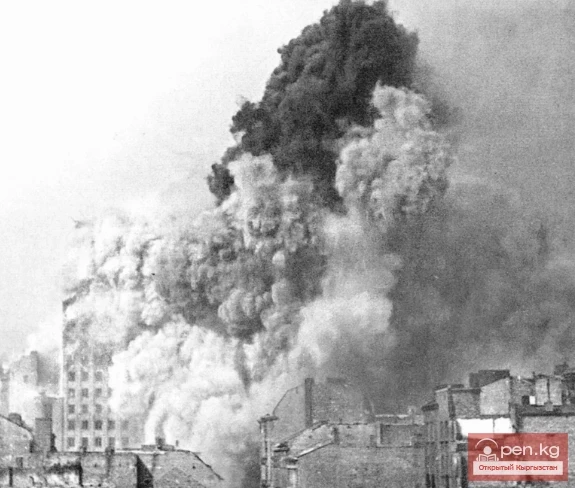
The artillery preparation lasted exactly one hour, and when everything quieted down, chains of advancing troops went one after another to the walls of the city. The assault on the fortress began. Captain Sukhov's battalion was among the first to burst into the city. The Stateberg factory stood as an obstacle in the path of the advancing troops, around which the Nazis had erected powerful reinforced-concrete fortifications designed for prolonged defense.
Several times Captain Sukhov rallied his soldiers, trying to break into the territory of the factory, but the fascist machine gunners, entrenched nearby in a three-story building, poured a continuous lead rain on the soldiers. And then the combat commander ordered soldier Grigory Burda, having tracked down the enemy's machine-gun nest, to sneak into the rear and bombard it with grenades. Soon explosions were heard there.
The success of the operation now depended on the decisive actions of the commander. The command rolled through the chain: "Prepare for the assault!" Waiting for a moment, Captain Sukhov stood tall and shouted with all his might: "For the Motherland! Battalion, follow me!" The dash was daring. A powerful "Hooray!" soared over the chain of advancing troops. Besides Sukhov's battalion, other units of the regiment joined the battle. This assault the enemy could no longer withstand.
In the heat of the attack, when the outcome of the battle was already predetermined, an enemy bullet struck the brave commander. Sukhov's life was cut short at the age of 35, with just three months remaining until Victory.
After paying their last military honors, the soldiers buried their fearless commander on the outskirts of the fortress city of Schneidemühl. The Motherland highly appreciated the feat of Captain V. I. Sukhov. By the decree of the Presidium of the Supreme Soviet of the USSR dated February 27, 1945, he was posthumously awarded the title of Hero of the Soviet Union.
After the war, Polish patriots transferred the remains of the Kyrgyzstani Hero of the Soviet Union, Captain V. I. Sukhov, to the city of Modlin and buried them in a mass grave alongside the soldiers and officers of the Polish Army who fought in the same ranks against the fascist occupiers. A monument has been erected here to the fallen Soviet and Polish soldiers. People from the older generation and youth often come here to pay their respects to the great feat of those who defended humanity from fascist slavery.
L. GROMADSKY
